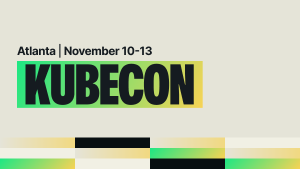As an early-career engineer, I sometimes feel overwhelmed drinking from the firehose of new information. After talking to one of my teammates on the Unified API team about how I was feeling, they shared a phrase with me, and it’s been helping me keep my cool ever since:
“I’m not expected to know this yet.”
It’s written on a sticky note attached to my monitor, and I repeat the phrase every time I come across a new or difficult concept. While I might not be expected to know this new thing yet, it's part of my job to learn about it at some point—along with plenty of other new ideas and topics. Figuring out what I should know now versus what I can learn later isn’t as easy as running JSON.parse() in my brain, but it’s a skill I’m continually working to develop.
I use a few different strategies for parsing, learning, and retaining information while also keeping my own expectations in check. If you’re just starting out as an engineer, or just find yourself occasionally overwhelmed by tons of information in a new role, try one—or all!—of these six strategies. They just might be able to help you, too.
1. Keep a journal of topics to research later. When I come across something I’d like to know more about, I write it down in my deep dive journal and return to it later for more in-depth exploration. Sometimes I take this information to others with less context and explain it to them in order to test my understanding. This process helps me work through what I know about the subject, and uncover anything I might have missed.
2. Ask questions at the right time. Rather than asking tangential questions during meetings or group discussions, I focus on high-value questions, or questions with brief answers, and write down anything else in my journal. If I have more questions, or need further explanation, I schedule a one-on-one with a teammate after the meeting to go over what I didn’t understand. This is also a great opportunity to deep-dive and ask as many questions as I need.
3. Ask for help from more experienced team members. This is the hardest one for me to remember. I wrote my first real line of code just shy of three years ago, so I try not to get down on myself for not knowing everything. Other members of my team have years of experience, and they can help provide crucial context and knowledge, sometimes all you have to do is ask.
4. Learn at your own pace. I try not to put unnecessary pressure on myself to learn about every topic I come across. It can be tough not to dig into every new concept, but sometimes it’s better to jot it down in my journal and research it more thoroughly when I have extra time or more context.
5. Identify opportunities to learn and take advantage of them. I recently diagrammed all of my team’s services in Google Drawings. This helped me better grasp what our services are and how they work, and it helped me find gaps in understanding. Plus, other teams can use the diagrams as a resource.
6. Find a mentor. My mentors have helped me maintain perspective, focus, and realistic expectations in the early stages of my engineering career. A supportive and amazing team is an important part of the puzzle, but mentors from outside your team can provide a different perspective to help guide appropriate and actionable goal setting.
Final thoughts
Everything takes time, particularly an engineering career, so try to keep a positive attitude as you grapple with more advanced topics. Remember to take your time, set reasonable goals, and ask for help. Everyone has to start somewhere, and you might be surprised to find that your teammates and friends are eager to help you out along the way.
이 블로그에 표현된 견해는 저자의 견해이며 반드시 New Relic의 견해를 반영하는 것은 아닙니다. 저자가 제공하는 모든 솔루션은 환경에 따라 다르며 New Relic에서 제공하는 상용 솔루션이나 지원의 일부가 아닙니다. 이 블로그 게시물과 관련된 질문 및 지원이 필요한 경우 Explorers Hub(discuss.newrelic.com)에서만 참여하십시오. 이 블로그에는 타사 사이트의 콘텐츠에 대한 링크가 포함될 수 있습니다. 이러한 링크를 제공함으로써 New Relic은 해당 사이트에서 사용할 수 있는 정보, 보기 또는 제품을 채택, 보증, 승인 또는 보증하지 않습니다.



